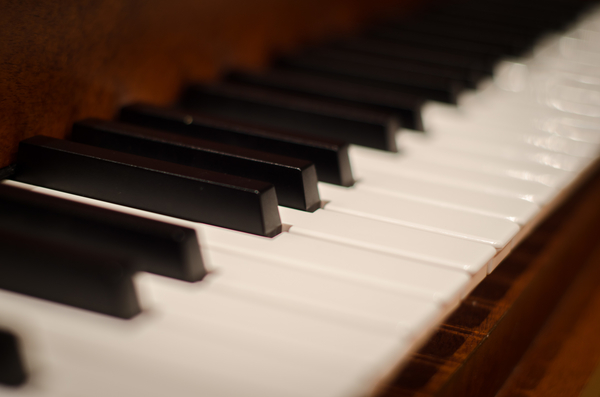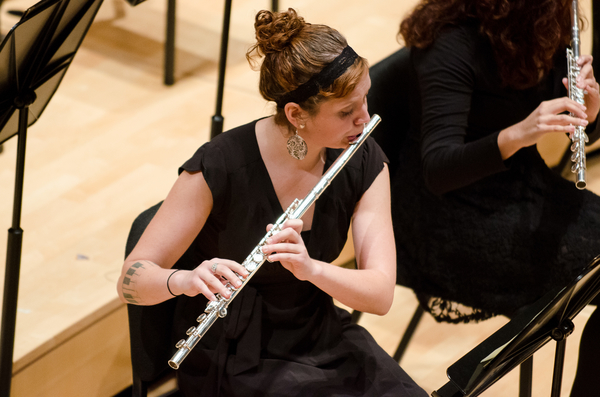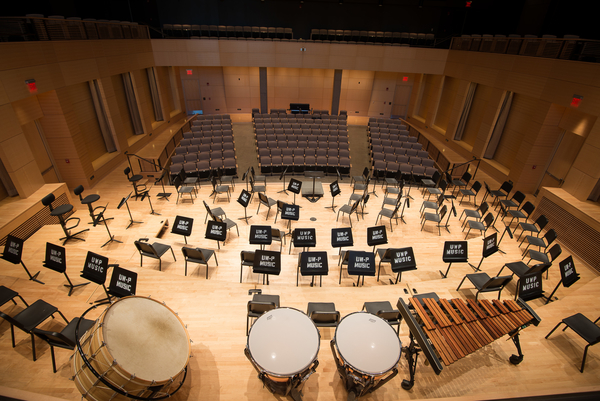Music Education is Back at UWP
Published: October 1, 2014
By: Mary Lenard
At the University of Wisconsin-Parkside, most students who want to become elementary, middle and high school teachers earn a degree in a certifiable academic major while preparing for educator licensure in Parkside's new educator development program.
This fall, the Parkside Music Department has music education back on board as an option for music majors. Graduates from this program will be able to teach students at any level from P-12.
According to Music Department faculty member Nancy Whitaker, the program prepares top students for dual licensure in general music P-8, and instrumental or choral music teaching 5-12. "This dual licensure reflects the current job requirements, because music teachers need to be capable of teaching a wide range of students in different music areas," Whitaker said. "The program is competitive and innovative due to technology strands woven throughout, coupled with interdisciplinary study, jazz improvisation, and clinical experience beginning with the students' first music-education course. Our students who started the program this fall are highly qualified and excited to be part of this initiative."
Research has increasingly shown how music education or training helps elementary, middle and high school students in many unexpected ways. A recent Northwestern University study, for example, looked at the impact of music education on at-risk children's nervous systems and found that music lessons helped the children to develop language and reading skills, which could help to close the achievement gap between low income and affluent students.
NAFME, the National Association of Music Educators, maintains that musical training can help students develop language and reasoning, improve memory and coordination, build imagination and intellectual curiosity, and stay engaged in school. Students who have experience with music performance or appreciation also score higher on standardized tests, with SAT scores on average 63 points higher for verbal scores and 44 points higher on math scores.
"It is exciting to think about what current and future Parkside music education students will be able to contribute to their communities," Whitaker said.
Parkside offers licensure in 12 certifiable majors, providing prospective teachers with a depth and breadth of content knowledge and a wide range of pedagogical skills. As a result they are better equipped to teach in today's diverse classrooms.
Moreover, the university's new educator development program emphasizes on-site fieldwork where prospective teachers put their education experience into practice long before graduation. This on-site clinical program was designed based on identified best practices and principles outlined by national education organizations.
Students complete a full 12 credit hours in on-site clinicals, and a further 18-week residency (student teaching) as a capstone experience. Because of its innovative design and the support and approval it has gained from the surrounding school districts, Parkside's Institute of Professional Educator Development (IPED) has quickly gained the state's approval for its certification pathways, which now include music.


